Eating Disorders
What Is An Eating Disorder?
An eating disorder involves a damaging relationship with food, eating, exercise and body image. Factors that cause eating disorders include a combination of genetic, biological, psychological and environmental influences.
Eating disorder symptoms may include drastic changes in weight, obsessive thoughts about food and body image, and excessive exercise. The effects of eating disorders on both physical and mental health can be profound, including nutritional deficiencies, organ damage, emotional distress and an increased risk of other serious medical complications.
What Are Different Types Of Eating Disorders?
Our expert team of Psychologists and Psychotherapists are trained to assist with many different types of eating disorders. Examples include:
Anorexia
Anorexia is an eating disorder whereby people try to keep their weight as low as possible. Methods to achieve this include not eating enough food, overexercising and taking laxatives.
Bulimia
Bulimia is a serious condition whereby people try to purge food from their body to prevent themselves from gaining weight. Methods to achieve this include vomiting, using laxatives or diuretics.
Binge Eating Disorder
Binge eating is an over eating disorder whereby people eat a lot of food over a short period of time until they are very full. Many feel that they lose control of how much they are eating and tend to feel guilty afterwards.
Body Image
A person with a negative body image may feel dissatisfied with their appearance and feel compelled to regularly measure or weigh themselves. This can contribute to Body Dysmorphic Disorder (BDD) and other conditions.
Eating Difficulties
Eating difficulties often include using the control of food to cope with negative feelings or other difficult situations. These unhealthy eating behaviours can adversely affect a person’s physical or mental health.
Eating Disorder Therapy in 3 Steps
Step 1: Assessment And Understanding
The first step involves a thorough assessment by one of our professionals. Through open and empathetic conversations, we will aim to understand the individual’s thought patterns and behaviour. This process helps us to identify the root causes of the eating disorder and tailor the therapeutic approach accordingly.
Step 2: Eating Disorder Support
Our therapist will offer support and guidance during this difficult time. They will provide the tools to address underlying emotional issues, modify unhealthy thought patterns and develop healthier coping mechanisms, fostering a path towards recovery and improved well-being.
Step 3: Treatment And Plan
The therapist will end the session by asking the individual how they are feeling. If worthwhile, a collaborative treatment plan may be discussed with the option of additional therapy sessions. This will help to create a structured roadmap for supporting the client during their recovery.
Where Can I See An Eating Disorder Therapist Near Me?
We offer therapy sessions in our clinics in London in Finchley (N3 2JU), Hackney (E2 9FN) or Brixton/Clapham (SW2 5UL). Home visits are also available on request.
Wherever you are based, it is possible to have eating disorder therapy near you as we offer online sessions via zoom or telephone consultations. The Oak Tree Practice does not let location get in the way of providing clients with the support that they need and are here to assist those living further afield across the United Kingdom.
Does The Oak Tree Practice Offer Eating Disorder Help?
Yes, our team of 37 therapists have a wealth of experience and are highly qualified to offer eating disorder counselling. Whether you need binge eating disorder treatment or CBT therapy for eating disorders, our team can provide valuable tools and guidance on how to overcome the challenges you are facing.
Whether you are facing bulimia, body dysmorphia or any other difficulty, our eating disorder psychologists and counsellors will tailor their approach to suit your individual needs. Get in touch via our contact form, Whatsapp us on 07926 713 198 or call us on

Client Testimonials For Issues We Have Helped With
Frequently Asked Questions About Eating Disorders
What Are Key Signs Of An Eating Disorder?
Eating disorder signs include noticeable changes in weight, extreme preoccupation with food, body image dissatisfaction, secretive eating behaviours and irregularities in eating patterns, such as excessive dieting or binge eating. Seeking professional help is crucial for effective treatment.
Can You Help With Eating Disorders In Children?
Yes, our sister practice the Little Bee Clinic offers treatment for eating disorders in teens and children. Our experienced therapists can offer age-appropriate treatment such as Play Therapy or Cognitive Behavioural Therapy.
How Long Are Therapy Sessions For Eating Disorders?
All of our sessions last 50 minutes. They can be completed in-person, over the phone or online via zoom.
How Do You Know If You Have An Eating Disorder?
If you find yourself constantly preoccupied with thoughts about food, weight or body image, engaging in extreme eating behaviours such as restrictive dieting or binge eating, and experiencing physical or emotional distress related to your eating habits, it is crucial to seek professional help. A comprehensive evaluation by a healthcare professional is essential for an accurate diagnosis and the development of an appropriate treatment plan.
Is Eating One Meal A Day An Eating Disorder?
Eating one meal a day is not inherently classified as an eating disorder. However, extreme patterns of food restriction could potentially indicate disordered eating. If such eating patterns lead to malnutrition, negative impacts on overall well-being or are driven by distorted body image concerns, then seeking guidance from a professional is advisable.
Will The Therapy Session Be Covered By Insurance?
Most of our therapists are covered by insurance. Examples include AXA, Vitality Health, BUPA, WPA, Cigna and Simply Health. Get in touch to find out if your session will be covered.
